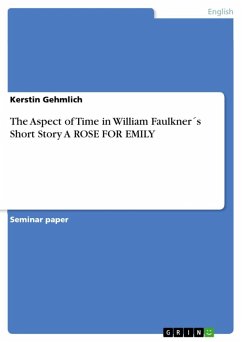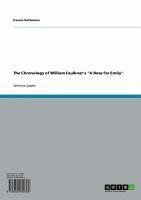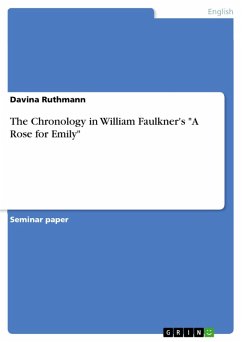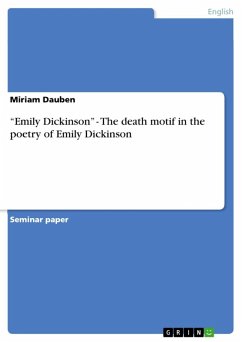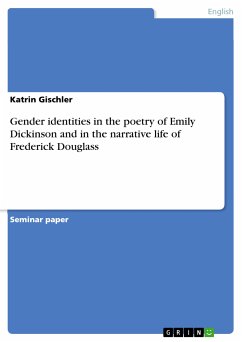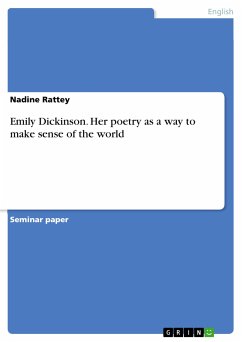Seminar paper from the year 2003 in the subject American Studies - Literature, grade: 1,0, University of Hamburg (Fachbereich Sprach-, Literatur- und Medienwissenschaft - Institut für Anglistik und Amerikanistik), course: Seminar II: Ethnicity in the Short Stories of William Faulkner, language: English, abstract: "The fact that I have moved my characters around in time successfully, at least in my own estimation, proves to me my theory that time is a fluid condition which has no ecistance exept in the momentary avatars of individual people." William Faulkner. William Faulkner's "A Rose for Emily" is a very complex and coherent short story. The story is set after Civil War in the southern town Jefferson, a town clinging to the Old South's values but adapting the eventual changes that the Reconstruction Era brings with it. The heroine Miss Emily Grierson is the last member of the old aristocratic Grierson family. When searching for "the" theme of the story, one is confronted with many possible solutions: the conflict between North and South, the conflict between the individual and the community, between men and women. No matter though, what the results are, one aspect cannot be ignored: it is the aspect of time, the conflict between the past and the present. There are many possibilities to approach this aspect. The tragedy that Faulkner describes involves the key issue of the passing of time and the related changes. I will show how the author makes it visible by exploring the significance of decay as a sign for passing time. Time itself suggests the presence of a past and a present. On this issue Faulkner presents two conflicting views within the story, which I will examine with a special interest on the view that Miss Emily inherits. In this paper I will also try to clarify the importance of the difference of the story line of events and the actual chronological order of the scenes of Miss Emily's life. Before examining the story, I will give an overview of the life and work of William Faulkner, followed by a note on influences on his fiction and the significance of his short stories.
Dieser Download kann aus rechtlichen Gründen nur mit Rechnungsadresse in A, B, BG, CY, CZ, D, DK, EW, E, FIN, F, GR, HR, H, IRL, I, LT, L, LR, M, NL, PL, P, R, S, SLO, SK ausgeliefert werden.

